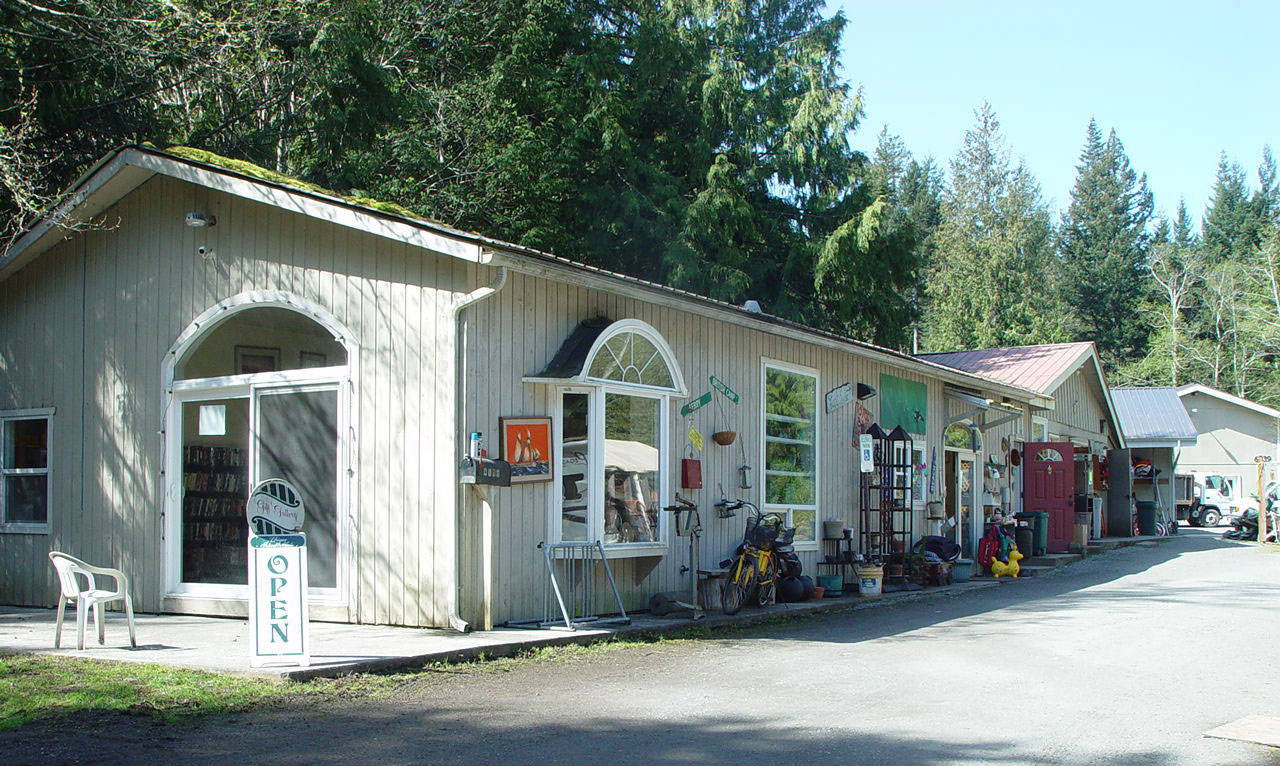Community Treasures is one step closer to closing its doors. On April 10, Frank Penwell, the owner of Community Treasures’ property, emailed the state’s electronic recycling program to cancel the nonprofit’s contract.
“Due to county planning department actions…and recent actions and words from the current Council Chairperson Rick Hughes, CT has to end its recycling services,” Penwell told the Journal.
Community Treasures, the nonprofit recycling center and thrift store, is the only e-recycling drop-off center on San Juan Island. Community Treasures employees also pick up e-recycling from Orcas and Lopez drop-off centers.
In an April 19 email to the Community Treasures listserve, Penwell wrote that the nonprofit is accepting printers, radios and telephones, but not TVs, computers or monitors for recycling. Those can be taken to the San Juan Transfer Station.
Penwell copied the Community Treasures list serve when he emailed the state’s e-recycling program, called Washington Materials Management and Financing. It included an email Penwell sent to County Councilman Rick Hughes, indicating that, based on recent encounters with Community Treasures supporters, Hughes did not back the nonprofit’s land-use designation change. Penwell wants the site’s land-use designation to change from rural farm forest to rural commercial, so the nonprofit’s activities would be conforming under the land-use type.
“The result of your actions are unfortunate for islanders and the environment, as those working toward zero waste will have no viable alternative on San Juan Island,” read Penwell’s email.
Yet, Hughes told the Journal he is on Community Treasures’ side.
“I greatly appreciate the work Community Treasures does and hope they continue to do it, but business plans are decided by those running the business, not the county,” he said about the nonprofit’s decision to cancel the e-recycling contract.
Hughes added that if Community Treasures eliminates its e-recycling drop-off center, another site will be found on San Juan.
John Friedrick, the executive director of WMMF, said San Juan Transfer Station officials are completing paperwork to possibly become the island’s new e-recycling drop-off. The transfer station will serve as a collection place for e-recyclables until the next drop-off center is determined.
Washington state code, said Friedrick, mandates one e-recycling center per county or town of 10,000 or more. The San Juan e-recycling drop-off center isn’t required by law, but it would be the most convenient for a county made of islands.
“We’ll do whatever we can to get a site at the transfer station and I think we will,” said Friedrick.
At several council meetings, councilmen have agreed Community Treasures land-use designation will be reviewed as part of the 2018 county comprehensive plan update. The update, which will be completed by next summer, will include a review of all county land-use designations and could change existing designations.
That may be too late for Penwell. He told the Journal he has requested the property’s land-use designation change, at least twice a year, since 2008, and was promised a change by county officials in 2012.
Penwell explained that the Community Treasures Board, which oversees operations, feels it would be fiscally irresponsible to purchase the land with a “non-conforming” status, as banks, insurance companies and other entities would not recognize the property as “compliant, legitimate and permanent.” Penwell wants to sell the property so the nonprofit can be community-owned and its charitable and recycling activities can continue for years to come. He started Community Treasures in 2004, after he retired, as a hobby.
The comprehensive plan update will also include a review of county “essential public facilities.” County code describes these facilities as “providing a necessary public service as its primary mission and that is difficult to site.” Its recyclable services could designate Community Treasures as an essential public facility. Last year the nonprofit recycled 565 tons, including 90 tons of e-recyclables. Neighbors don’t usually like to live by these facilities, like dumps, so the designation protects the site’s “essential” uses.
At a March council meeting, Erika Shook, director of San Juan County Community Development, said Penwell sent two letters to the county. One asked for the property to be designated as an essential public facility and the second requested the county make a site-specific amendment to the county comprehensive plan to change the land-use designation. Shook said both steps require an application and fees, which she has not received. Penwell told the Journal county officials have never suggested he complete applications or pay fees during his almost 10 years of land-use designation requests. Reviews under the 2018 comprehensive plan update are free, said Shook.




